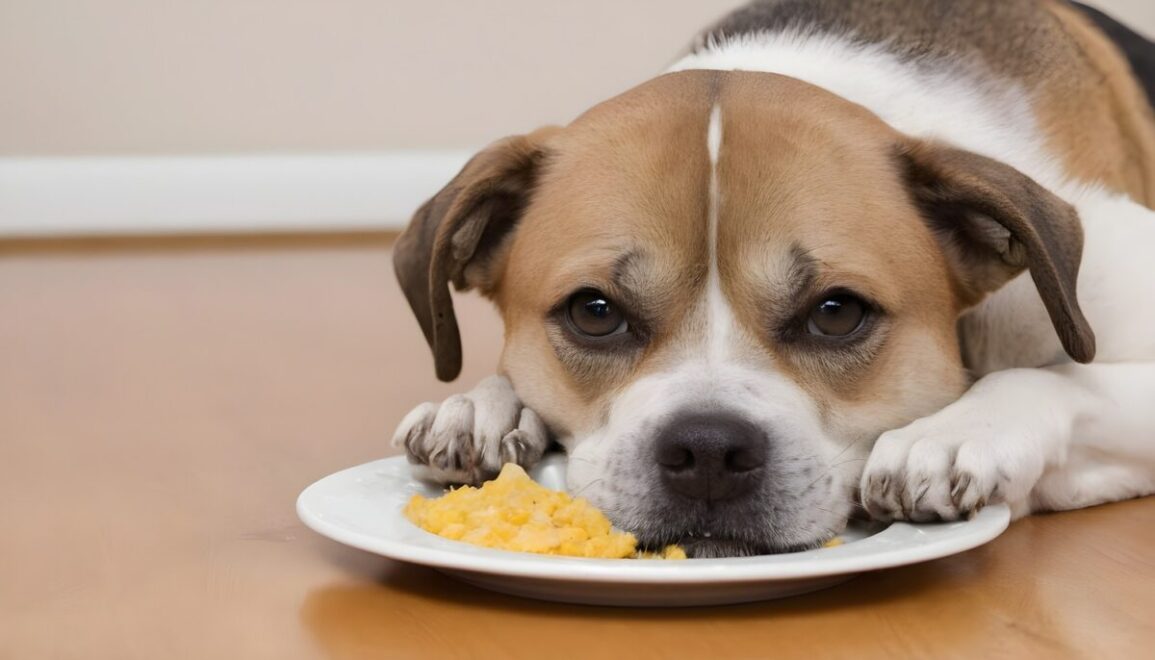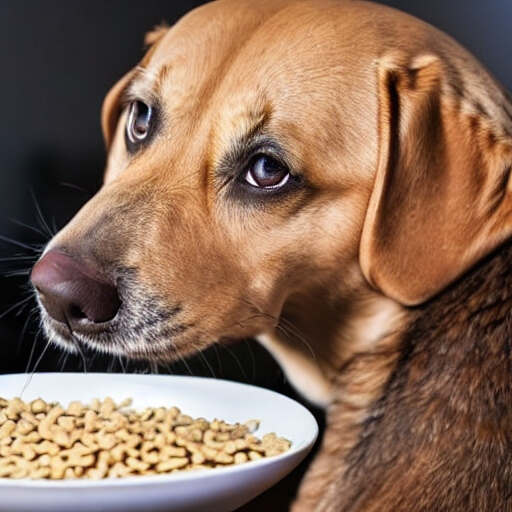
Our four-legged friends frequently act as rays of unwavering love and friendship in the wide world of human-dog partnerships. But even in the middle of the happiness and camaraderie, there are situations that confuse and worry dog owners. One such perplexing habit is certain dogs’ propensity to weep or whine when eating. This unusual emotional outburst provides a window into the complex world of our pets. In this comprehensive investigation, we will set out to explore the multitude of explanations for why some dogs cry while eating, carefully examining the physiological and psychological aspects involved.
Table of Contents
why does my dog cry when he eats.
Dentistry Dilemmas.
The likelihood of physical discomfort is one of the most common causes of a dog crying during a meal. Dogs can experience dental problems that show up as toothaches or gum sensitivity, just like people. Chewing is an essential part of eating, but if you have dental issues, it can become painful. In the event that your dog appears reluctant to eat or appears to weep as they are chewing, it is not only wise but very necessary to have a thorough evaluation of their oral condition performed. Ensuring your dog is comfortable at mealtimes requires both careful oral care and routine dental check-ups.
Dietary Sensitivities and Allergies.

Dietary variables are important threads in the complex web of canine health. Dogs are susceptible to dietary allergies and sensitivities, just like people are. If your canine companion expresses discomfort while enjoying his food, it may be a sign of digestive illness. Frequently found allergies in dog food include some proteins, cereals, and chemicals. Examining possible nutritional changes for your dog may be facilitated by keeping a close watch on their behavior and having a consultative conversation with your veterinarian. Making the switch to a hypoallergenic or restricted ingredient diet may help reduce allergy responses while also improving your dog’s eating experience in general.
Fear and Stress.
Dogs are intelligent creatures that effortlessly absorb the emotional nuances of their surroundings. Therefore, if your dog sheds tears while eating, it could be a sign of stress or anxiety. Changes in the environment, such as introducing a new pet, moving, or changes in daily routine, can cause stress in dogs. Creating a calm and consistent atmosphere during meals is an important basis for reducing anxiety. Additionally, setting up a quiet area where your dog can eat without distractions can greatly contribute to a calmer eating experience and uncover the complex emotional layers surrounding eating.
Association with Negative Experience.

Dogs have an uncanny ability to connect past experiences with current situations. If your dog cries while eating because of an unpleasant incident in the past, chances are he will be reminded of that memory every time he approaches the food bowl. Possible injuries include an incident with another pet, a sudden loud noise, or an accident while breastfeeding. To change your dog’s perception of mealtime as a positive experience, include positive associations. Make mealtime fun by speaking in a cheerful tone, offering treats, and using puzzle feeders to gradually erase any negative impressions left in your dog’s memory.
Medical Problems and Crying of Pain.
Beneath the surface of seemingly inexplicable behavior, a hidden medical problem may be the cause of your dog’s quiet discomfort while eating. This may be the cause. Gastrointestinal problems such as stomach ulcers and constipation can cause pain and discomfort when eating. If your dog does not stop crying or shows signs of illness, such as lethargy or changes in bowel habits, it is not only desirable, but also a moral obligation, to immediately consult a veterinarian. Identifying and treating potential medical problems is important not only for your dog’s immediate health, but also for a healthy and happy future.
Behavior Problems and Attention Seeking.

Some dogs cry while eating as a form of attention-seeking behavior in the complex dance of dog-human interaction. If a dog learns that whining or crying provokes a response from its owner, it is likely to continue that behavior. It is important not to give in to your dog’s demands and intensify his whining. If you establish a consistent feeding routine and only give attention or rewards when your dog is calm and calm, you are sending the message that calm behavior is praised, but crying is not. This organized approach gradually transforms your dog’s eating experience into a harmonious symphony of mutual understanding.
Age-Related Factors.
Age is a quiet but omnipotent factor that can have a significant impact on your dog’s eating behavior. For example, puppies may cry during meals due to teething problems or transitioning from breastfeeding to solid food. On the other hand, older dogs may experience changes in appetite and difficulty chewing as they age. By adjusting the consistency and type of food and providing smaller, more frequent meals, you can meet your dog’s changing needs at different stages of life. This nuanced understanding allows for a customized nutritional approach that takes into account the unique needs of each life stage.
Conclusion.
In the grand scheme of dog behavior, the mystery of why dogs cry while eating is solved by a complex interplay of physical and emotional factors. Understanding the causes of this behavior is not just an intellectual task, but a grave responsibility for the well-being of our faithful companions. If the tears do not stop or are accompanied by other worrying symptoms, veterinary advice is essential. By delving into the complex layers of a dog’s psyche and addressing the underlying issues, we can transform mealtime into a joyful and harmonious experience and strengthen the bond between humans and their furry friends.
Remember that every dog is a unique individual, and the path to understanding may require patience, empathy, and a keen eye for the complexities that make dogs special creatures. Navigating the symphony of canine emotions, we strive to create a melodious and harmonious dining experience for our beloved companions, ensuring that every meal is a sign of health, well-being, and the lasting bond we share. We guarantee it’s something to celebrate.
why does my dog cry when he eats?

Why do some dogs cry during meals?
Explore the various reasons behind this behavior, including dental issues, dietary sensitivities, and emotional triggers. Understand the nuanced factors influencing your dog’s mealtime experience.
How can I address my dog’s crying during meals?
Discover practical tips to create a positive dining atmosphere for your canine companion. Learn effective strategies to alleviate stress, address potential health issues, and foster a harmonious mealtime routine.
What role does dental health play in a dog’s mealtime behavior?
Delve into the significance of dental health and its impact on a dog’s eating experience. Understand how dental issues can contribute to discomfort and discover proactive measures to ensure your dog’s oral well-being.
Are there specific dietary changes that can help stop my dog from crying during meals?
Explore the connection between dietary choices and a dog’s behavior during meals. Learn about common allergens, hypoallergenic options, and how adjusting your dog’s diet can contribute to a more enjoyable dining experience.
How can I strengthen the bond with my dog during mealtime?
Gain insights into fostering a deeper connection with your furry friend while sharing meals. Discover ways to make mealtime a positive and engaging experience, reinforcing the unique bond between you and your canine companion.

One Reply to “why does my dog cry when he eats?”